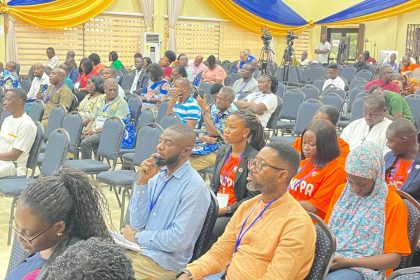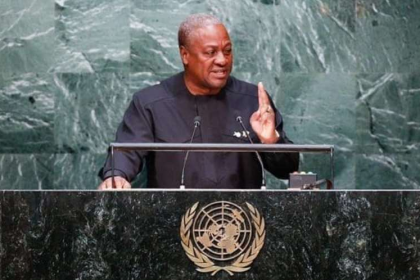The future of the Ghanaian Cedi will depend on stronger institutions, disciplined economic management and a renewed national commitment to protecting the value of the currency.
That was the central message at the commemoration of the Cedi’s 60th anniversary in Accra, where leaders warned that the next phase of Ghana’s monetary journey cannot rely on sentiment or symbolism but on hard reforms and public trust.
Opening the event, President John Dramani Mahama said the anniversary should be understood as “a call to action, not a ceremonial celebration,” insisting that Ghana must confront the structural weaknesses that continue to undermine the currency.
He said the Cedi’s survival over six decades (through political upheavals, inflationary surges, commodity shocks and global crises) demonstrates resilience, but not immunity.
The President urged policymakers to anchor their decisions in transparency, fiscal discipline and sound governance if they expect the Cedi to remain credible.
Mahama reminded the audience that the Cedi has always been more than a medium of exchange. Its introduction in 1965, replacing the Ghanaian pound, marked a decisive declaration of monetary independence after colonial rule.
He described it as a cornerstone of national identity and a measure of economic confidence, but warned that “a currency is only as strong as the institutions that defend it.”
Bank of Ghana Governor Dr Johnson Asiama reinforced the President’s message, calling for a forward-looking approach to monetary management shaped by global technological and financial changes.
He noted that Ghana cannot rely on traditional tools alone and must embrace digitalisation, including the development of the e-Cedi, to strengthen payments systems and widen financial inclusion.
He also highlighted the need to enhance regulatory oversight, modernise policy tools and insulate the financial sector from external shocks.
The event brought together economists, policymakers, fintech innovators and international partners to reflect on the forces that have shaped the Cedi’s trajectory.
Discussions focused on inflation control, exchange-rate pressures, foreign-reserve management and the persistent challenge of dollarisation. Participants agreed that Ghana’s currency stability depends on coordinated action across fiscal, monetary and regulatory fronts.
The commemoration also served as a reminder of how far the currency has travelled. Since its introduction on 19 July 1965, the Cedi has weathered redenominations, bouts of instability and repeated attempts at reform.
Many of these episodes were tied to global price swings for gold and cocoa, rising public debt, or governance lapses that placed sustained pressure on the currency.
Speakers noted that the next 60 years must look different. With new technological opportunities, a maturing financial sector and a more discerning public, the Cedi’s future will hinge on credibility – earned through consistent policy, stronger institutions and greater discipline across the economy.
As the anniversary concluded, the message was clear: Ghana cannot afford to treat the Cedi as a relic of history. Its fate will depend on decisions made now, and its stability will reflect the country’s economic choices, governance standards and commitment to long-term reform.






